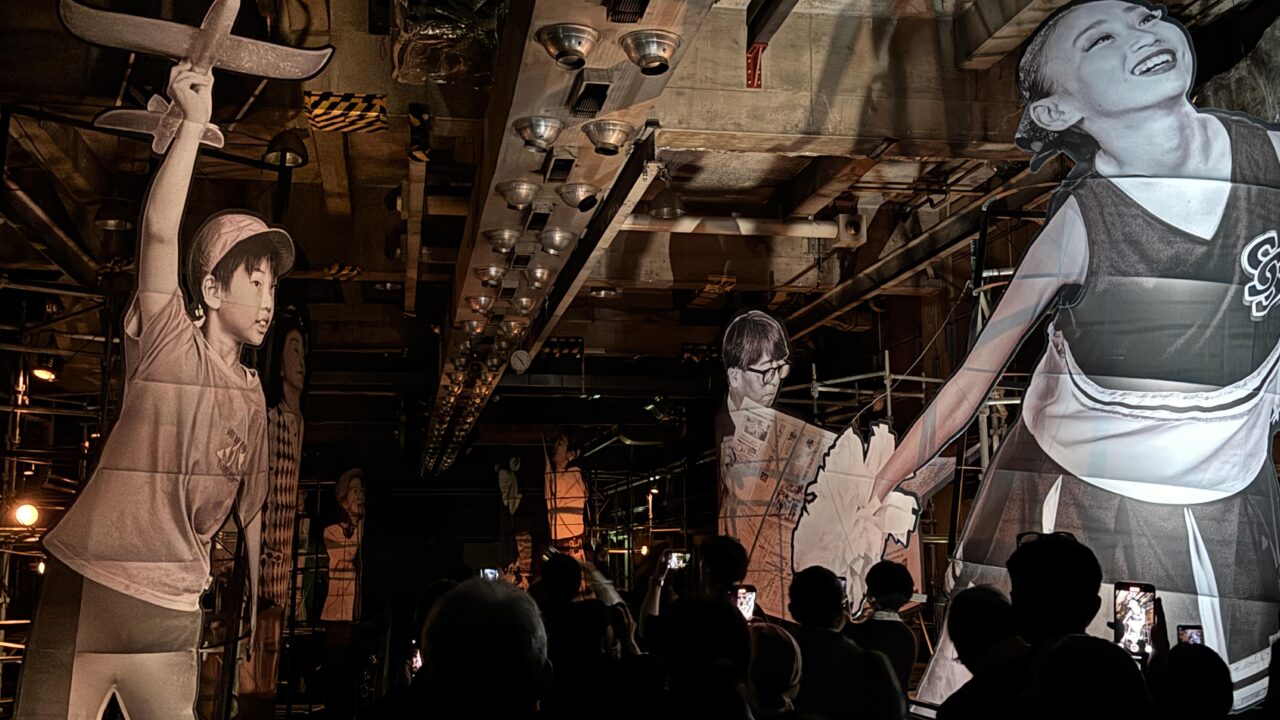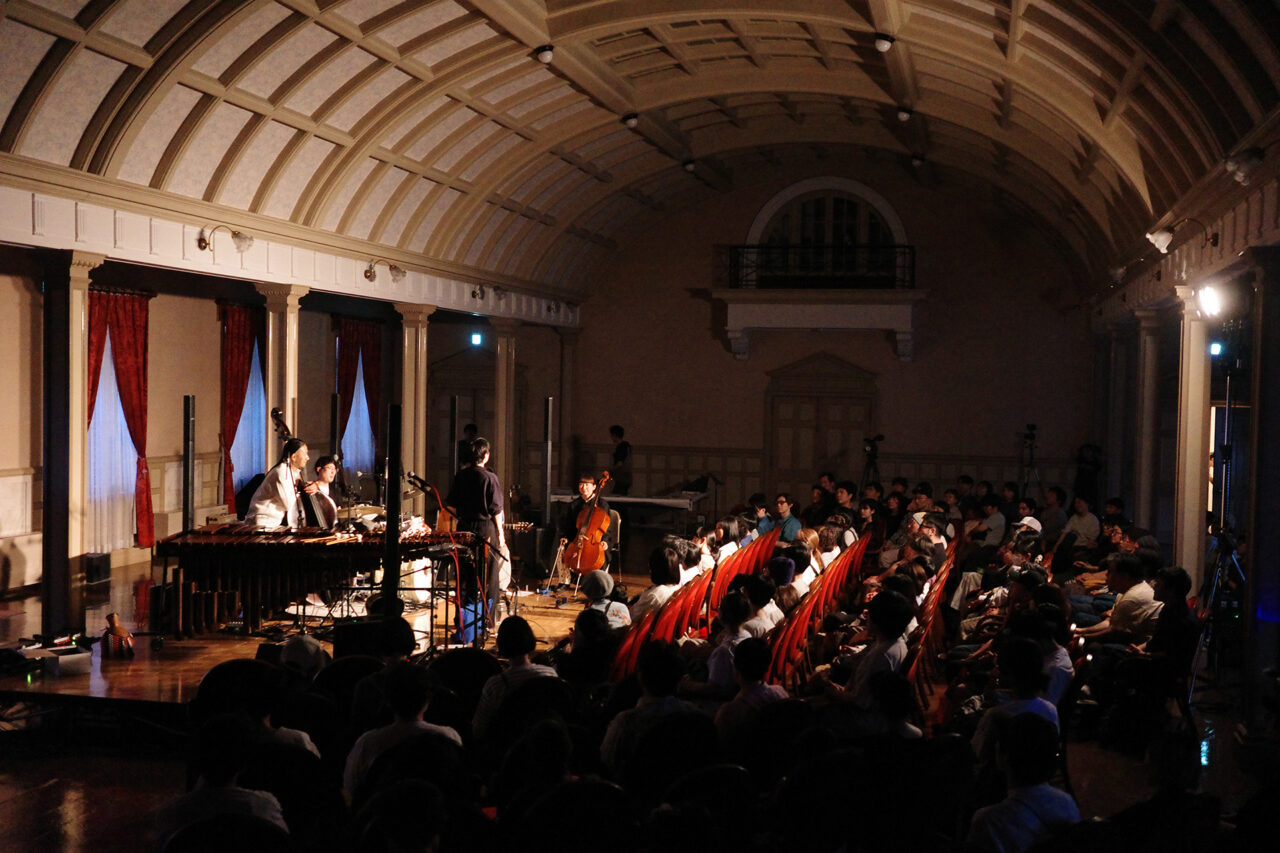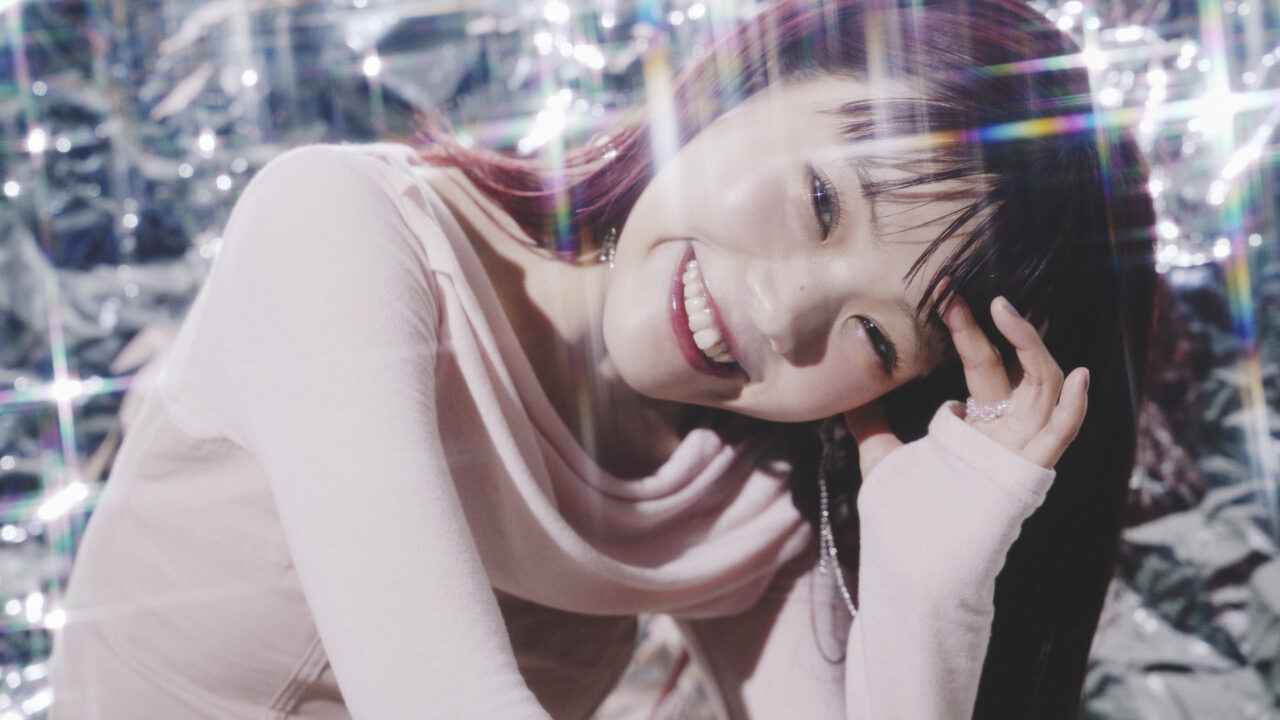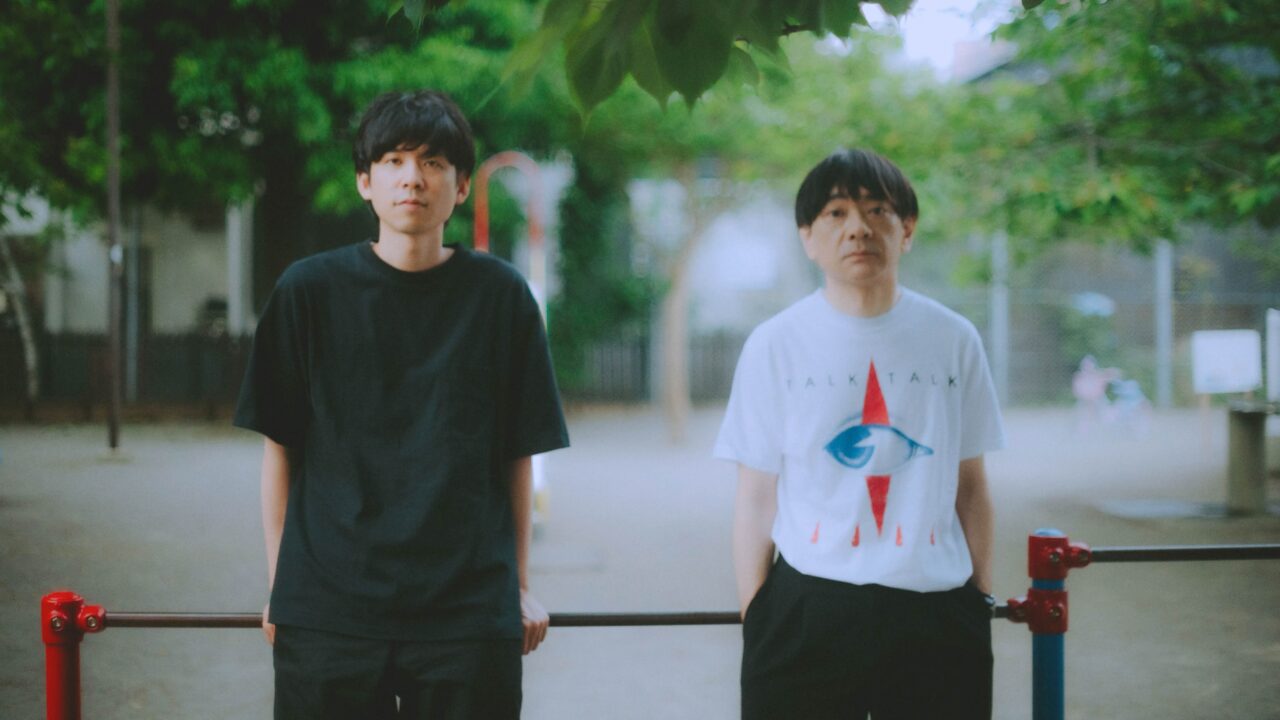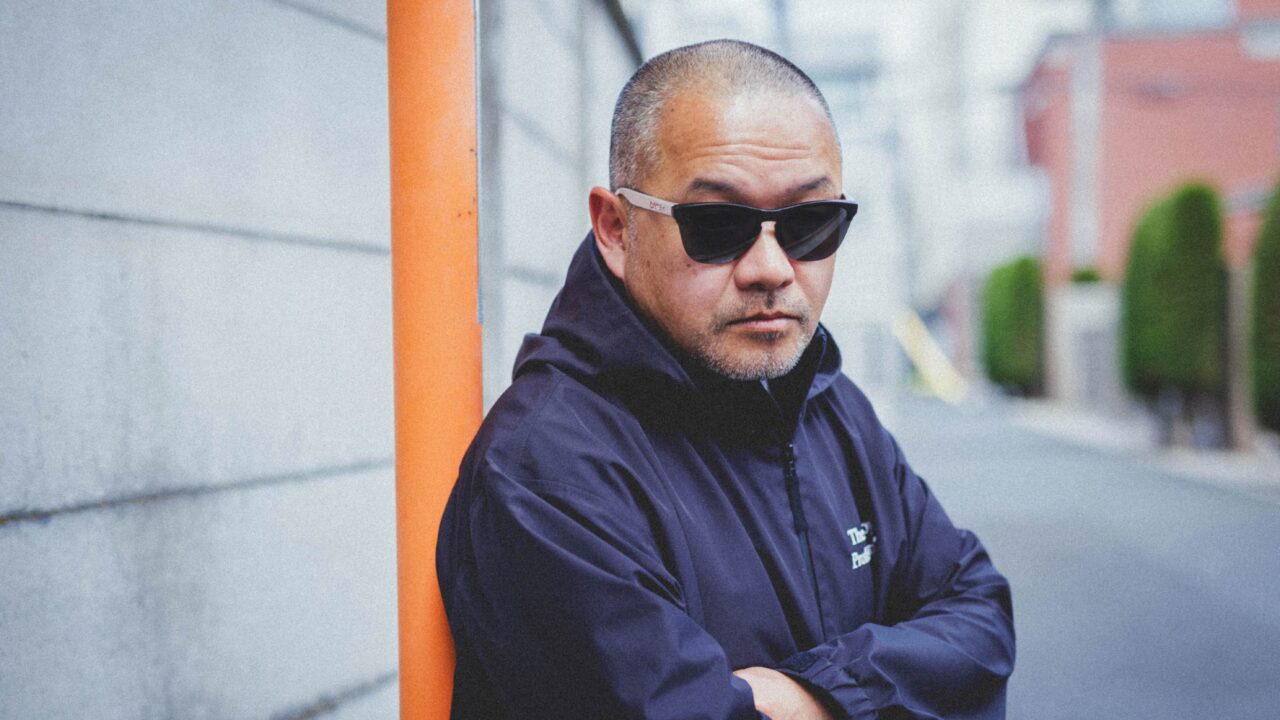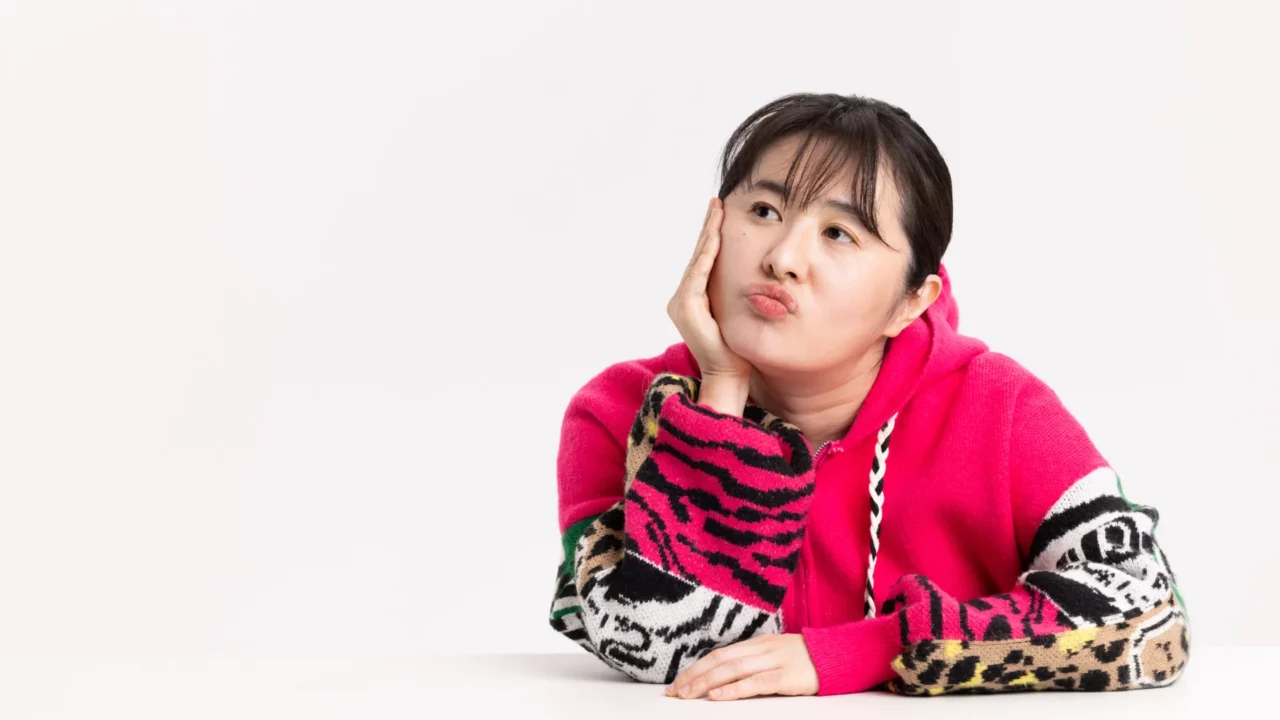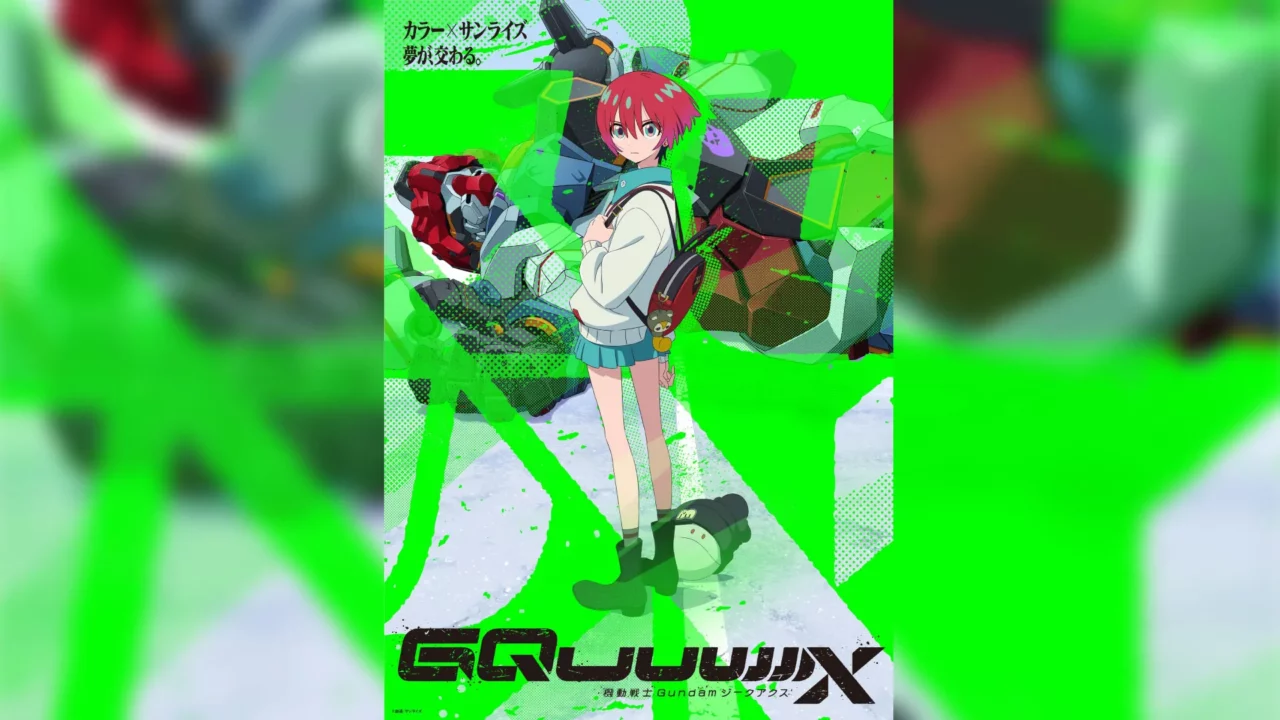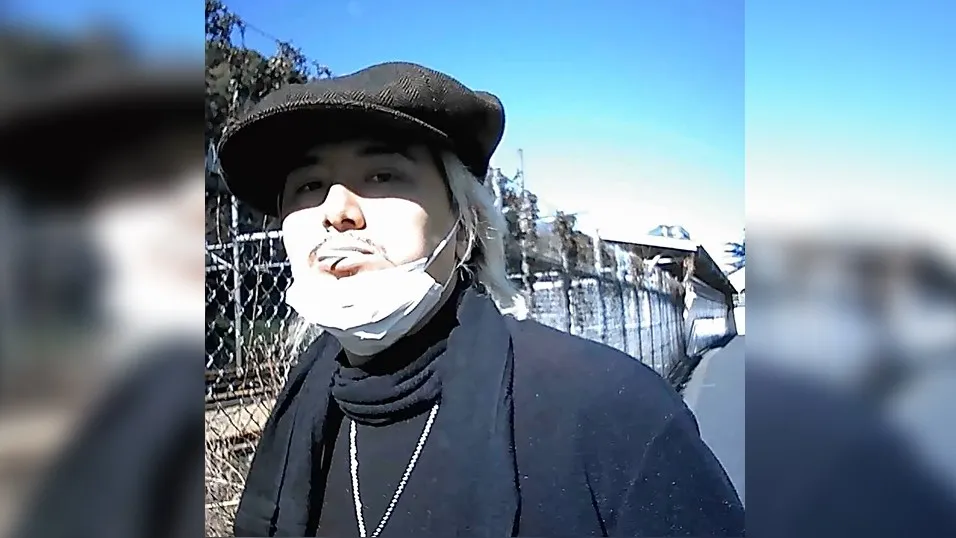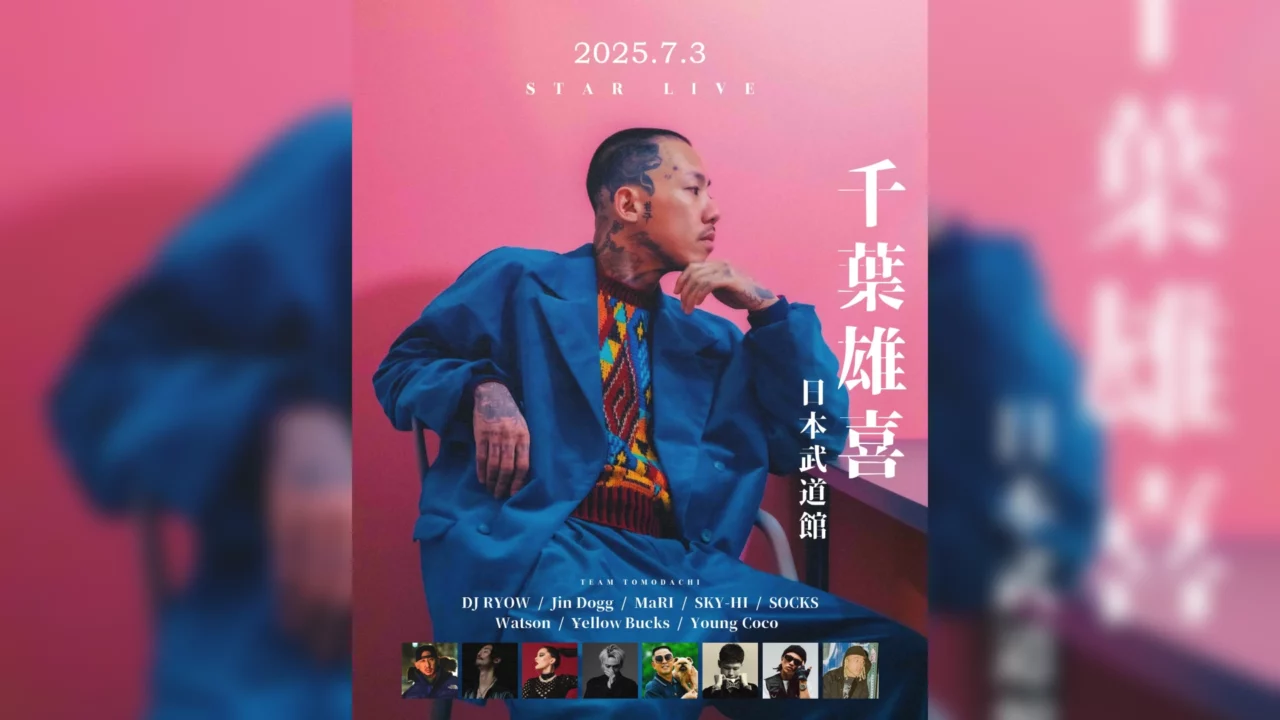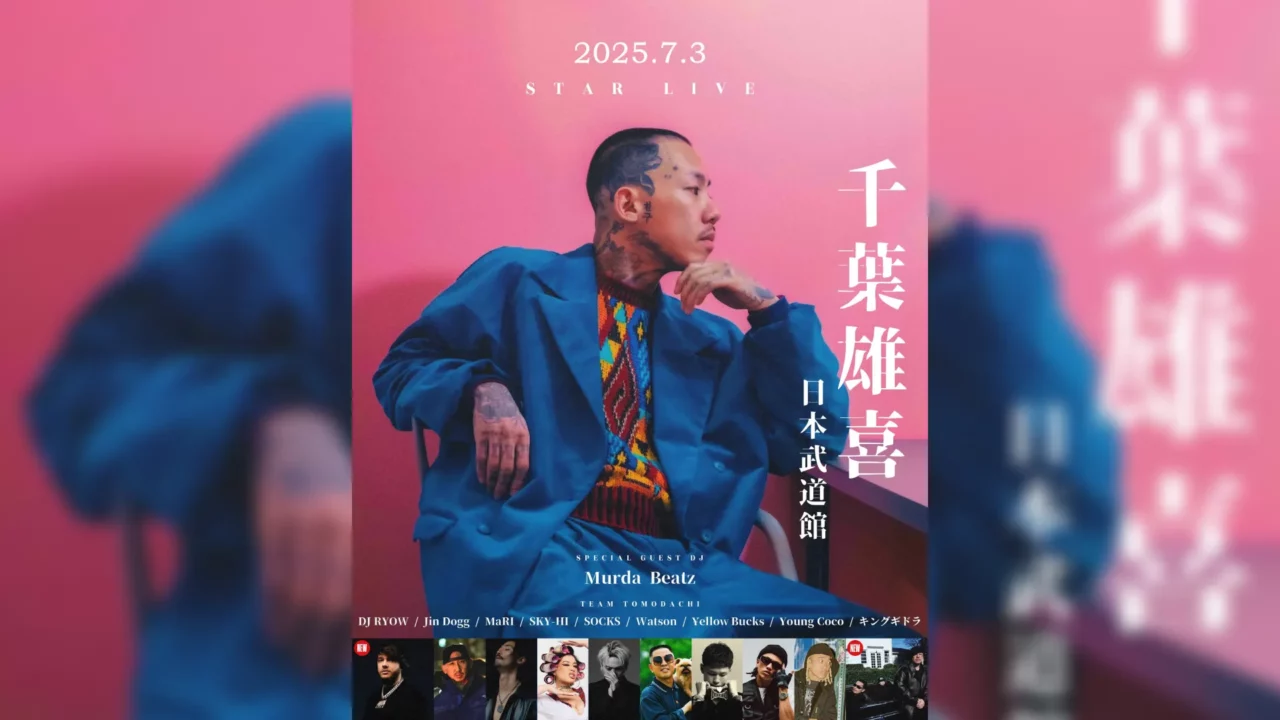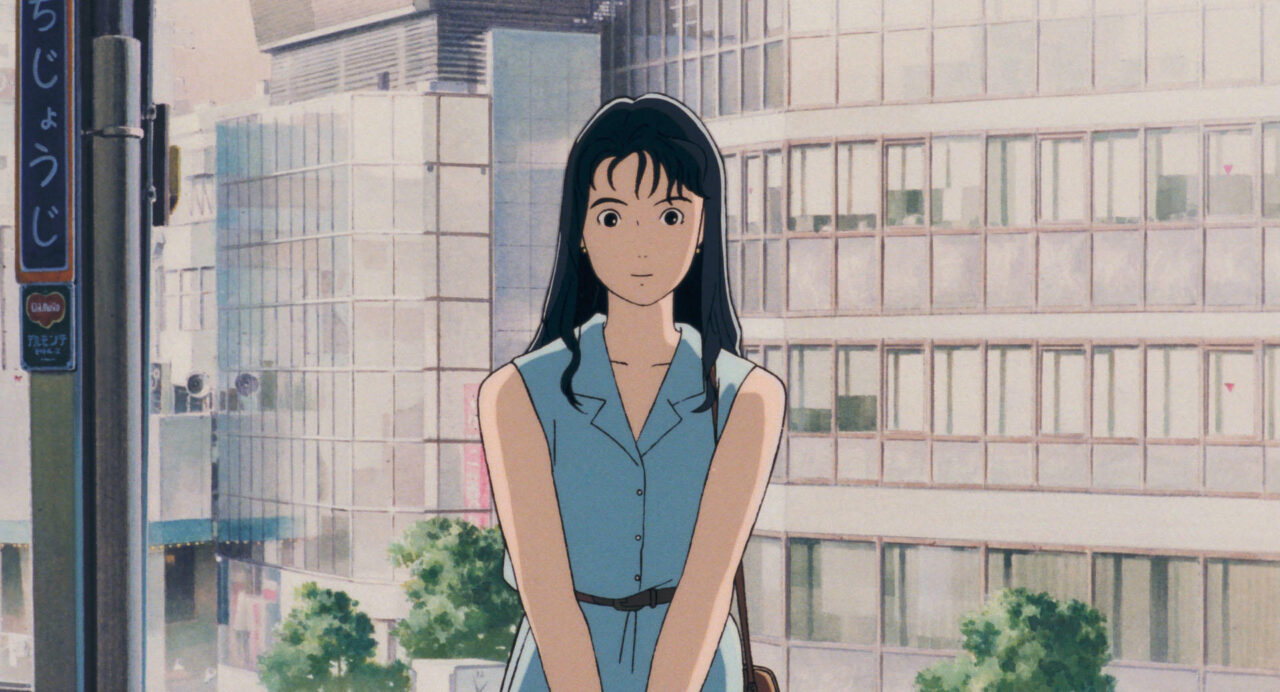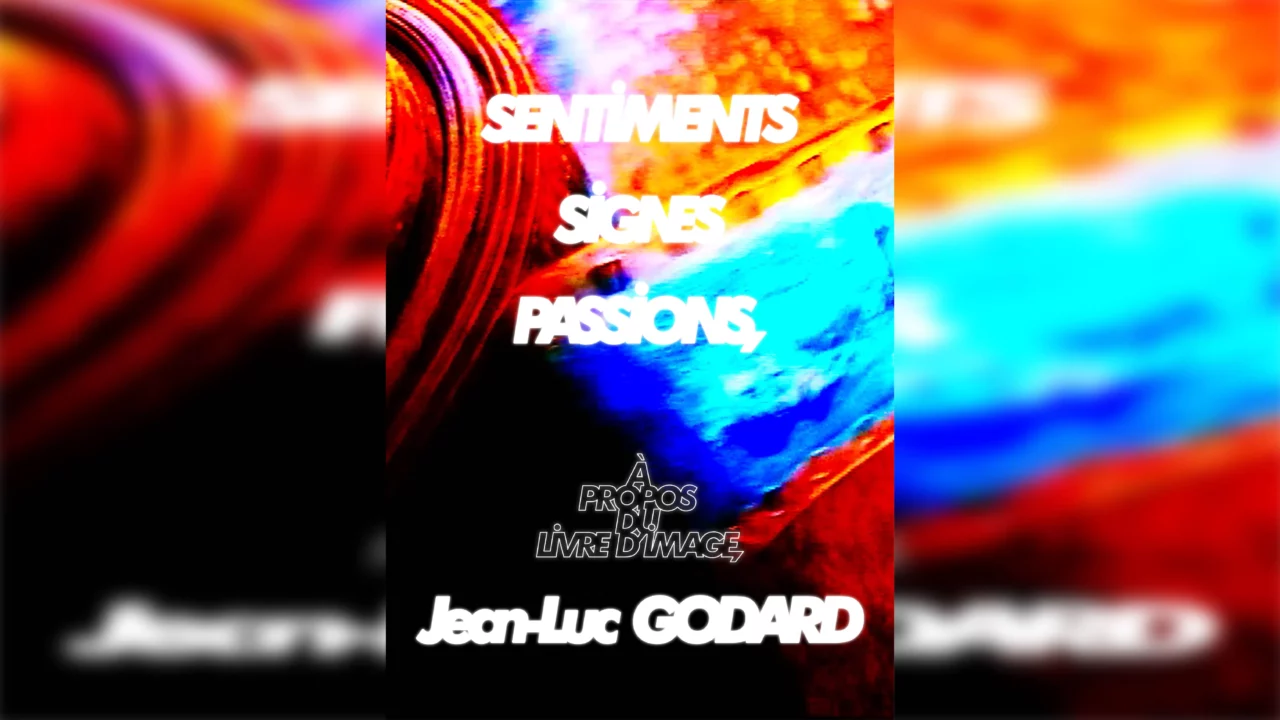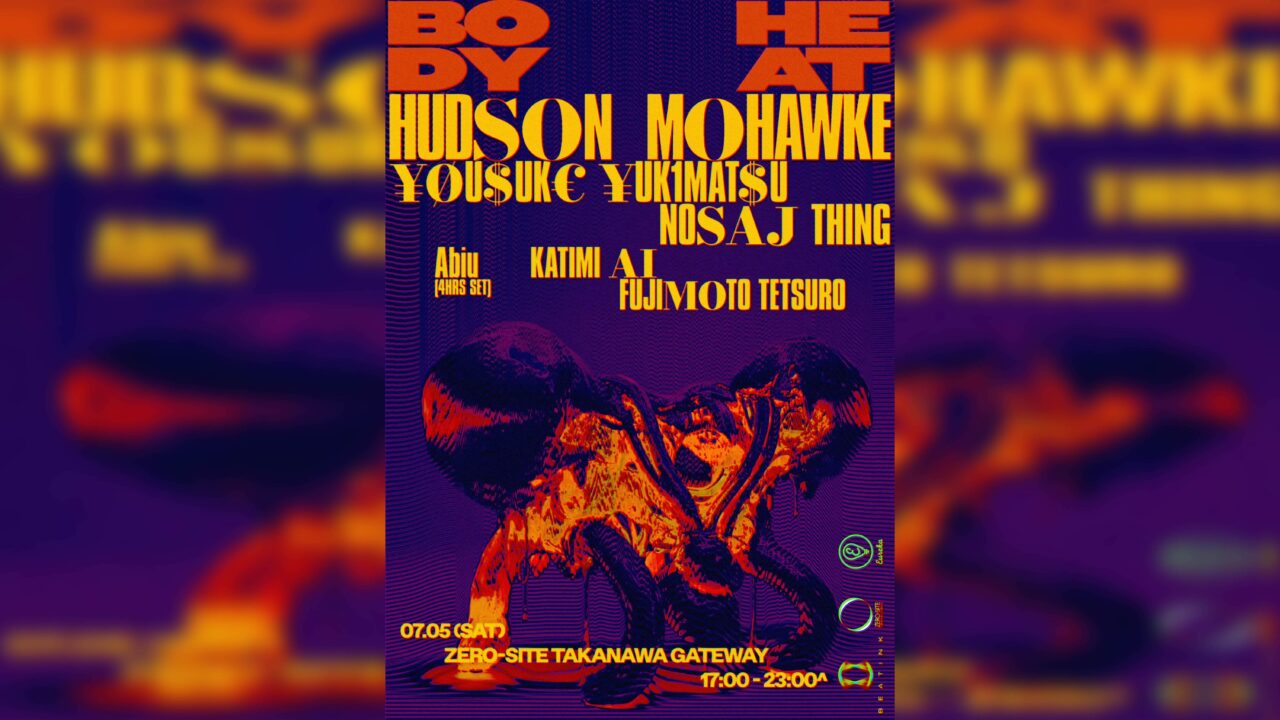The theme song for the film Maru, which will be released nationwide on October 18 (Friday), has been decided as Tsuyoshi Domoto’s “Machi (movie ver.)”.
Tsuyoshi Domoto (of KinKi Kids) takes on his first solo lead role in a film in 27 years, directed by Naoko Ogigami, known for Kamome Shokudo. The story follows the protagonist, Sawada, who loses his job as an assistant to a popular contemporary artist due to an arm injury from an accident. Guided by ants on the floor of his room, he begins to be consumed by the circle (maru) he starts to draw, leading him to a transformation in his daily life. The film features co-stars such as Go Ayano, Riho Yoshioka, Win Morisaki, Satomi Kobayashi, Junki Tozuka, Oideyasu Oda, Mari Hamada, Taichi Saotome, Hikari Katagiri, Kotaro Yoshida, and Akira Emoto. It has also been revealed that Domoto will handle the film’s music under the name .ENDRECHERI. / Tsuyoshi Domoto.
The theme song “Machi (movie ver.)” is a re-recording of his 1st single “Machi,” originally released in 2002 under the name Tsuyoshi Domoto, specifically for the film. With the announcement of this information, a video featuring behind-the-scenes footage of Domoto playing the piano and chatting with co-stars has been released. At this time, “Machi (movie ver.)” is not scheduled for release, and the full version will only be available in the film itself.
Additionally, comments from Domoto and producer Masako Yamada (Asmik Ace) have also been released.
● Lead Actor: Tsuyoshi Domoto
The song itself was written during a time when I didn’t particularly like people. It embodies the feeling of not wanting to forget the pain within me, even though I sometimes get hurt and hurt others. It’s like the traces of my fiery struggles from my younger days; if I forget the pain, I might end up hurting someone else, so the song conveys a strong heart to not lose sight of that. Therefore, every time I sing it, I find myself dialoguing with my younger self, which parallels the essence of Maru. When I reflect on myself in that way… I can’t say I’ve changed that much since then. That also resonates with Sawada’s character. He unexpectedly gains attention for drawing a circle (maru), but he thinks, “No, that’s not what this is about,” and finds happiness and joy through creating the art he truly wants to make. It feels very similar to my own journey. Every time I sing “Machi,” I can return to a time when I was trying to be myself as a young person. That’s why I felt it was meaningful to sing this special version for the film. I focused on the emotional aspect rather than overthinking it. This film has become an incredibly luxurious project where I get to conclude it with my own song. I feel that the way it lands makes it seem as if Sawada is singing “Machi,” so I’m truly happy to have sung it.● Producer: Masako Yamada (Asmik Ace)
As the collaboration between Director Ogigami and Tsuyoshi Domoto comes to fruition, I had a desire from a producer’s perspective not to confine them to the predetermined roles of director and lead actor. Director Ogigami has primarily worked in film, while Tsuyoshi Domoto has distanced himself from acting to focus mainly on music. I wondered if these two strong-willed individuals could team up and carve out new territory with their unique artistic sensibilities. It was only natural to ask the musician Tsuyoshi Domoto to create the film’s music, and I consulted with him simultaneously when offering him the lead role.
Moreover, Director Ogigami, who typically doesn’t write specifically for actors, faced Tsuyoshi Domoto—someone he had always been curious about. As they came to understand each other as human beings, I suggested using “Machi,” one of Domoto’s signature songs, for the theme song during the process of bringing the character Sawada to life. To my surprise, he responded, “Actually, I was listening to ‘Machi’ while writing the script.”
Just between us, I knew that Ogigami isn’t the type of writer who is actively enthusiastic about theme songs, so I was taken aback by his positive reply. However, I felt a strong desire to use “Machi,” a song that carries significant meaning for Domoto and was likely written during one of his toughest times. It felt special that this collaboration between Ogigami and Tsuyoshi Domoto, occurring after 27 years since his last solo lead role, brought this story to life. The narrative can be interpreted as a parallel world: What if Tsuyoshi Domoto was not a superstar? The song, reflecting the emotional struggles Domoto faced, now takes on a new presence as it closes the story of a character named Sawada—who is written for Domoto but is not Domoto himself—over 20 years later. Such a transformation would not be possible without the original song being extraordinary. When I proposed this, Domoto himself said, “If that’s the case, I want to re-record it with my voice as a 45-year-old,” leading to the birth of the elusive theme song “Machi (movie ver.),” which can only be heard in full in theaters.
The song’s persuasive power is immense; it certainly exists as a part of the story, evoking thoughts about how the protagonist will live on and leaving an impression of what lies beyond the end of the story… (Maru). I believe it has become a truly unique theme song.
Maru

In Theaters on October 18 (Friday)
Cast: Tsuyoshi Domoto
Gō Ayano, Rihō Yoshioka, Win Morisaki, Junki Tozuka, Oideyasu Oda, Mari Hamada
Akira Emoto, Taichi Saotome, Hairi Katagiri, Kōtarō Yoshida, Satomi Kobayashi
Director & Screenwriter: Naoko Ogigami
Music: .ENDRECHERI. / Tsuyoshi Domoto
Production Companies: Asmik Ace, Joker Films
Produced and Distributed by: Asmik Ace
Copyright: © 2024 Asmik Ace, Inc.
Official Website: https://maru.asmik-ace.co.jp/

